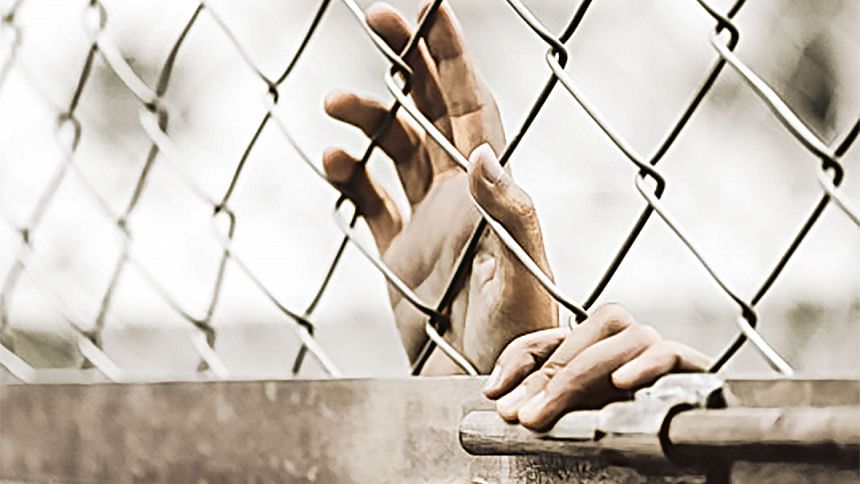Culture of neglect and abuse at child development centres

An investigative report by The Daily Star, printed on Wednesday, disclosed that poor living conditions and rampant abusive behaviour are part and parcel of the overcrowded rehabilitation centres that host child offenders in Tongi, Jashore and Konabari.
Not only are the children punished severely for the slightest mistake, there is almost little to no health or psychosocial care being provided. One 13-year-old testified to around 20 boys sleeping on the floor together and being frequently afflicted by various illnesses, without getting any medical assistance. In fact, despite suffering from diarrhoea, he was still forced to clean toilets as "punishment" from senior inmates, who are allowed to abuse younger inmates with zero interference from the authorities in charge of the centres. How is this treatment meant to "rehabilitate" a child sentenced for the minor offence of stealing?
The Daily Star correspondents also found that in the Tongi centre, there was only one psychiatric case worker and one social case worker to provide counselling to 545 children. None of the centres had any registered doctors or child psychologists, and no extra attention was being given to especially vulnerable children who needed special care. This is despite the fact that there are at least eight girls with special needs at the girls' centre at Konabari. On top of that, although these centres are meant to give these children a new direction in life, only around 13 percent of male offenders and 27 percent of female offenders were enrolled in technical courses to learn new skills.
What is worse than the abysmal conditions at these centres is the complete lack of responsibility being taken by the authorities in charge. While the superintendents of the centres denied all allegations of abuse, the relevant district social services authorities only spoke of "closely monitoring" the centres; no mention was made of holding any of the centre staff to account for their abusive and irresponsible behaviour. Despite the minors at the centres speaking of a horrific culture of bullying and torture, from senior inmates as well as centre staff, these accusations were routinely denied. How can those in charge provide solutions if they refuse to acknowledge that a problem exists?
The authorities must display their commitment to protecting our children—even (and especially) if they are child offenders—and helping them to make better choices in life through rehabilitation, not punishment. There needs to be a complete overhaul of the management system of these centres, and officials of the social services department need to be trained in the operations of such sensitive facilities with complete transparency. Without getting the adequate support and care at an early age, these disturbed minors will only be further pushed towards a life of crime.

 For all latest news, follow The Daily Star's Google News channel.
For all latest news, follow The Daily Star's Google News channel. 



Comments